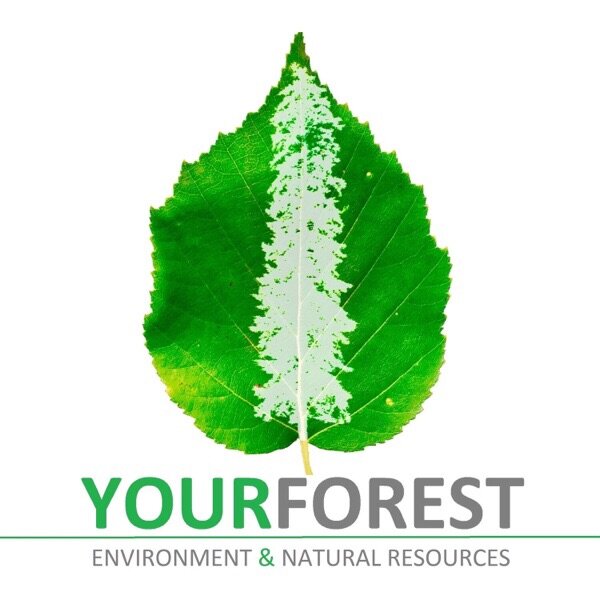The final episode of the Good Fire Podcast is an incredible conversation that helps to try and summarize some of the ideas we have discussed over the last 10 episodes. Jay Mistry has been working with and doing research in South America with Indigenous peoples for years, and she has a great perspective on many of the issues we have discussed. We talked about the role of cultural fire in Brazil and Venezuela, indigenous lead fire programs, and the challenges with colonial governments and how we can start to shift the conversation. Thank you for listening, we hope to bring you more episodes in the future.
Episode highlight
In this podcast, Jay Mistry talks about cultural fire in Brazil and Venezuela, Indigenous-led fire programs, and the challenges with colonial governments.
Resources
Jay Mistry: https://pure.royalholloway.ac.uk/portal/en/persons/jay-mistry(21cb3408-1419-4ec2-9b70-bcf46c0bfac4).html
From fire suppression to fire management: advances and resistances to changes in fire policy in the savannas of Brazil and Venezuela: https://pure.royalholloway.ac.uk/portal/files/28888954/Geographical_Journal_2017_Author_Final_Version.pdf
Sharing Multiple Perspectives on Burning: Towards a Participatory and Intercultural Fire Management Policy in Venezuela, Brazil, and Guyana: https://www.researchgate.net/publication/334264499_Sharing_Multiple_Perspectives_on_Burning_Towards_a_Participatory_and_Intercultural_Fire_Management_Policy_in_Venezuela_Brazil_and_Guyana
Sponsors
The Canadian Partnership for Wildland Fire Science
Support from:
● California Indian Water Commission
● Firesticks Alliance Indigenous Corporation
Quotes
“16.26 - 16.38: “There was a lot of evidence being gathered around the world about how Indigenous practices, not just fire management, but other types of Indigenous practices, are actually sustaining biodiversity and reducing greenhouse gases.”
30.58 - 31.07: “Fire is not just a tool but it’s actually part of people’s culture as well and it’s actually quite linked into every… bit of their culture.”
Takeaways
Fire used differently in different ecosystems (01.27)
Jay is a professor of environmental geography in the Department of Geography at the Royal Holloway University of London, UK. She shares her parental lineage and her academic and professional journey which brought her to Brazil. Though she had set out to study the effects of fire on vegetation, her research led her to engage with the Indigenous peoples who conducted cultural burning, and their practices in the savannas.
Changing the fire paradigm (8.48)
Jay recalls that due to the strong focus on firefighting and fire prevention, Indigenous burning in Brazil was not well-received in the 90s, and in some cases, it still isn’t. She points out that government agencies are “realizing they can’t fight fires anymore”, and are warming up to the idea of active fire management. She claims that the agribusiness lobby is villainizing Indigenous burning as degrading the land. Wildfires seldom reach urban centres in Brazil but are feared.
Making the case for Indigenous fire management (14.10)
Jay has been researching the savannas on the border of Brazil and Venezuela with Bibiana Bilbao of Simón Bolívar University in Venezuela. Bibiana has conducted experiments to show how Indigenous fire management practices reduce fuel loads. They have put together a literature review of Indigenous practices of Brazil, Venezuela and Guyana and have organized discussion groups and trust workshops for Indigenous peoples, government and academics.
Creating a safe space (20.33)
Jay highlights that the key to success in their workshops was that the Indigenous peoples trust them due to their long-term relationship. They also received feedback that it helped the Indigenous groups to have facilitators they knew. She shares how her workshops have also done well due to their long duration, having champions for Indigenous fire management in the firefighting groups and knowledge exchange between firefighters and Indigenous peoples.
The importance of Indigenous fire management in preventing climate change (26.23)
Jay speaks about a workshop held in Venezuela which brought Indigenous leaders to look at how Indigenous fire management could inform climate change mitigation policies. Cultural burning prevents large, catastrophic, high-intensity fires that emit greenhouse gases, thereby reducing the carbon footprint. Climate change has caused longer droughts, which affects how burning is done. Cultural burning is part of Indigenous culture and is done year-round.
Learning from Indigenous knowledge (35.07)
Jay cites a UN report that states that we must learn from Indigenous peoples’ sustainable practices, which can prevent the mass extinction of biodiversity. However, she warns against the colonization of Indigenous knowledge, and for knowledge sharing to be done by the Indigenous, and to their benefit. She laments that government agencies resist handing over power to any other entity.
Community and solutions (40.24)
Jay suggests adopting a positive and inquisitive approach in learning from local people how they practise conservation and natural resource management instead of approaching them looking to find gaps in their practices. She explains the different land ownership and management agreements in the different countries of South America, and how they compare to those in Africa.
Paving the way forward with reconciliation (45.25)
Jay and her colleagues have received a grant to create an international Centre for Wildfires, Environment and Society to research global wildfires. Her role will involve integrating Indigenous and local community fire management practices with scientific data to inform climate modules. She believes now is a good time to “show how important Indigenous fire management and fire knowledge is”.
Our land, our rights (49.48)
Jay notes that since Indigenous knowledge is tied to the land, land tenure and land rights become important considerations. Ensuring Indigenous peoples have rights to their land will lead to the application of their practices and management there, which will maintain biodiversity and reduce greenhouse gases. She reveals that governments have been trying to repeal some rights in order to access the resources on Indigenous lands.
Collective connectedness (54.46)
Jay has observed that Indigenous peoples “see themselves completely connected” with the physical and spiritual ecosystems within nature. This connection is as a collective, considering their ancestors and future generations. She believes that western society has lost these values, and fails to see how our actions in the present can affect someone else down the line. By sharing positive Indigenous stories and knowledge, we can all learn these values.
You can get in touch with the hosts of this podcast via email: amy.christianson@canada.ca and yourforestpodcast@gmail.com.

